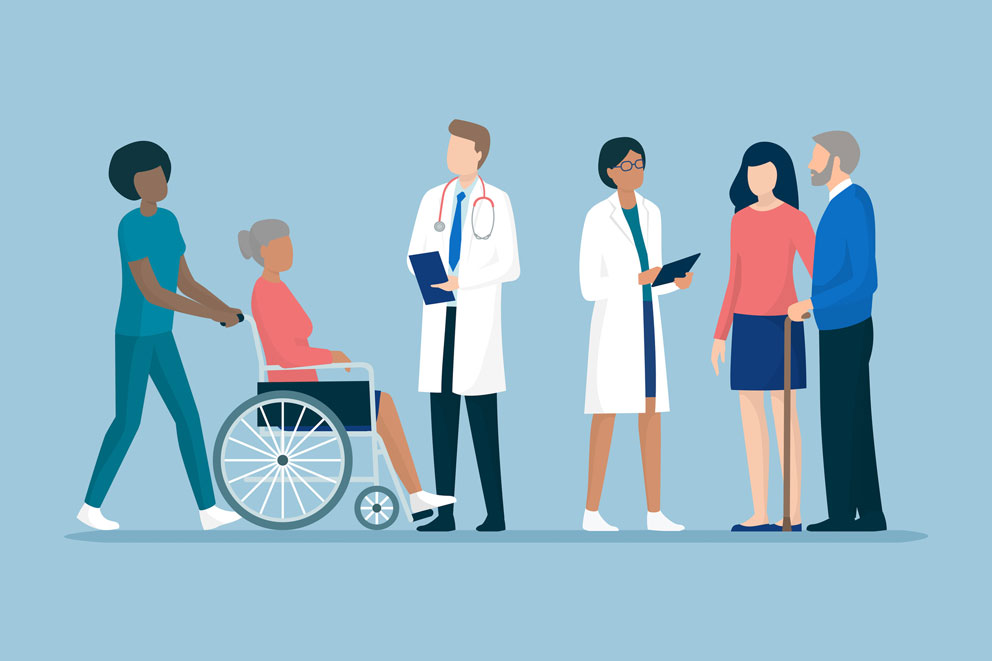Family medicine is the field that deals with the family as a unit. Family physicians are tasked to ensure family members get the proper attention for their well-being. They also make sure that all family members stay healthy in general.
Family medicine is critical because a physician cares for all the family members. This means that family physicians can care for adults and children alike. However, family physicians must refer patients to the right specialists when needed.

Understanding Family Medicine
Family medicine is an important field that has helped many people. However, some do not know what family medicine does and why it is important.
Family physicians can be considered community health workers because they take on this role to help people around them. Nowadays, family physicians use family practice management software to help them take care of patients in their practice. This is because family physicians attend to plenty of patients every day.
Family physicians are the best doctors when you need a family doctor because they can provide comprehensive, holistic, and family-centered patient care while helping people manage health from infancy through older adulthood. They also help children with illnesses like asthma or diabetes or ensure healthy kids get regular checkups.
Below are the responsibilities of a family physician:
Creating patient health programs
Family physicians are responsible for creating patient health programs with their patients. They look over family history and any changes in family members’ lives to keep track of all medical records, so they can be prepared for anything if a family member does get sick.
Patient health programs are essential because family physicians can follow family history and health changes instead of starting from scratch when a family member does get sick.
Providing preventive care
Another responsibility that family physicians have is providing preventive care for their patients. They provide essential information on keeping people healthy to avoid future illnesses or problems.
Preventive care is essential because family members get the information they need to prevent future illnesses. Through patient education, family physicians can help family members stay healthy.
Tracking patients’ health programs
Family physicians are also responsible for tracking family members’ health programs. Many family physicians help family members set up a program that includes healthy eating and exercising habits, quitting smoking or drinking alcohol, regular sleep schedules, and other important factors to achieving good overall health.
As a result, family physicians can help family members develop lifelong habits, especially regarding health. This way, family physicians can help more people stay healthy.
Immunizing and vaccinating patients
Family physicians are also responsible for immunizing family members against common diseases, including measles and whooping cough. This is important because family physicians can help protect family members from getting sick with these conditions.
Family doctors also are responsible for vaccinating family members against more severe illnesses, such as polio or tetanus, and knowing which vaccines family members need will help them stay healthy and strong.
Advocating for family members in the community
Family doctors may also advocate for family members’ health in their communities. This can be done by encouraging family practices to start immunizing children. Family physicians also work with families to guarantee that all families have basic knowledge of how to stay healthy all the time.
Referring patients to specialists
Family doctors are also responsible for referring family members to specialists when necessary. For instance, family doctors will guide family members with cancer to an oncologist. This way, they can receive the care and treatment they need immediately. After all, the knowledge and expertise of family doctors differ from the knowledge and expertise of specialists.
What Else Makes Family Medicine Important?
Family doctors see patients of all ages, from newborn infants to seniors. This means they are responsible for diagnosing and treating infections, injuries, and other diseases in family members of all ages. It is a common misconception that family physicians only focus on treating illnesses in adults or children, so the family doctor must educate people about this fact!
In short, family medicine is necessary because family doctors are responsible for diagnosing and treating illnesses that affect the whole family unit! Understanding what makes family medicine so particular will help you see why visiting a family doctor today is necessary.
However, it is also essential to understand that family physicians must refer patients to specialists if a family member develops a disease or condition outside their expertise. This can be frustrating for family members who wish to see one doctor and not worry about being referred elsewhere. Still, this setup allows family doctors to provide the best possible care when diagnosing and managing diseases in their patients.
Therefore, family medicine is critical because it helps communities achieve better health outcomes. Without family doctors, family members would have no one to run to if they encounter healthcare problems.




